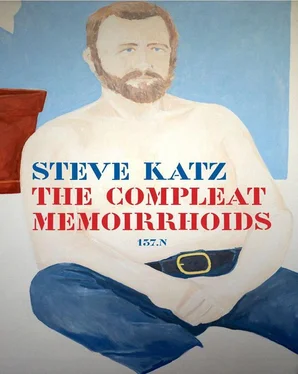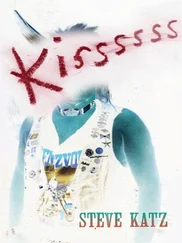When Alfred returned, later in the afternoon, with a couple of neighbors and a wagon, I saw that he was surprised and pleased. I had cocked practically the whole field, almost two acres. He put me on the wagon to arrange the load as they pitched. The horses knew to move slowly, ahead of the men. I arranged the hay so it formed a wall, hanging slightly over the sides, but square around the whole wagon. You build up the walls, I figured, then fill the center. We got almost the whole field onto one load, wide and high.
“That’s the best load of hay I’ve ever seen, son. Yes yes. How did you figure that out?” He looked at his two neighbors, who nodded in agreement. “Now you take it back to the barn.” He handed me the reins.
That was a shock. Suddenly he trusted me. Here I floated hundreds of feet up in the air above the valley, at the top of the load. I didn’t dare complain that I’d never driven a team before. I made that giddyap sound (tchk tchk tchk) I’d heard Gabby Hayes do in the movies. We started to move. I tried to steer, but it wasn’t necessary. Patsy and Olaf knew the way back to their oats. It felt like some great victory to be a kid from Washington Heights New York City sitting on top of a load of hay I’d shaped into the best load of hay Alfred Partridge had ever seen. I was king of the whole gorgeous northern Catskill hard-scrabble farm scene.
As we reached the bottom of the steep hill, and approached the barn, a sense of dread overcame me. How could I steer this so it didn’t smash against the doorway? I tried to rein in Patsy and Olaf and reconnoiter, but they already smelled their oats and wouldn’t stop. I had no choice. I had to trust them. They knew exactly where they had to go to take the load plumb down the center. Then I looked up and saw that I was a dead guy, a farm accident statistic from Washington Heights. The load of hay was high enough so it would brush the hand hewn lintel beam of the barn, and I was proudly on top of the load. The beam would rip my head off before the horses stopped. I hurled myself back at the last moment, into the slight depression I had left at the center of the load. The lintel caught my ankles and tumbled me over. I was alive. I slid down off the hay, brushed myself off, regained some pride, which remained a little more tentative after that. I unhitched the horses, and removed their harnesses. They seemed to grin at me, as if they knew what had happened. I led them into their stable and doled out their oats.
I never told Alfred about how that ride nearly killed me. He knew me differently from then on, and from then on launched his campaign to get me to stick around, forget school, and “farm it”. It was a possibility, another possibility.
I followed her as she wobbled up the trail at Bandelere, texting as she went. Eight more dreary days with this girl. I was tired and disappointed. I felt mean and without patience. Maybe I was a fool to expect a real traveling chum from a fifteen year old girl. She related almost exclusively to her texting network embedded in New Jersey and didn’t care to relate to me, to the present time, the present place. She sat down on a bench near the great Kiva. “You go ahead,” she said. “I’ll wait for you here.” “Don’t you want to see the houses, the way they lived?” She looked at the cliff ahead, sculpted with Anasazi dwellings. “No. You go ahead. I’ll wait for you here.” “This is the great Kiva, their religious ceremonial structure.” She stretched her neck a bit, could barely see over the edge. “Huh.” She looked back down to the phone that blinked harder, it seemed, as if admonishing her for turning away. I suppose I was a bad adult, should have been more like a demanding teacher and insisted she pay more attention to where she was. I couldn’t. I didn’t want to set a bitter tone for the rest of this trip, so I smothered my frustration.
It had touched me before that on her own initiative she phoned to ask me how I was. Her grandmother, my sister, was dying. That she thought of me at that time I found special. Several years earlier her mother had flipped out and deserted the family, had fled back to Israel to her Yemeni roots. My nephew, a working musician with a musician’s schedule, was raising two boys and a girl on his own. I wanted to reciprocate for the unusual concern his daughter had shown, so I made a plan, both time consuming and expensive, to bring his daughter to visit. Except to see her uncle in San Francisco, she had never been west of New Jersey. I wanted to give her the opportunity to appreciate some of the most fabulous landscape in America.
I don’t know what she saw on our trip, if anything. She wasn’t ever present with me to share it. It seemed unimportant that I was there at all, except to drive and pay. It troubled me that she hadn’t read one book, one tourist pamphlet, one online article about the place before she visited. She had no input on the trip, nothing in particular she wanted to see, no experience she had thought about and anticipated. Nor had she read even a story or poem of mine, no less a novel, to stimulate conversation. It felt ignorant and disrespectful. I detected only a dull indifference to where she was, and no curiosity. When I slowed down as we crossed the fabled bridge over the Rio Grande gorge near Taos and said, “This is the Rio Grande.” She responded, not even looking up from her phone, “What’s that?” I filled with a mixture of rage and pity, wanted to weep. What kind of education was she getting if she didn’t know the Rio Grande? Even in New Jersey there’s an issue of desperate Mexicans. The Rio Grande! What movies had she watched?
She read a book by Dan J. Millman, The Peaceful Warrior , when she wasn’t texting. It was another block to checking out the amazing landscape. At least she reads books, I thought. The force of that title comes from the near oxymoron, a “peaceful warrior.” I would have liked to discuss that with her, but discussion never became part of our MO. We lean into the war metaphor whenever we want to show we are serious about something. The WAR on drugs. The WAR on poverty. The WAR on obesity. The WAR on cancer. That rhetoric is commonplace. The WAR on crime. The WAR on homelessness. To what extent does that rhetoric shape our reality? Does it give a favored status to WAR as solution to all problems? Can it be one of the factors that keeps our species in a constant state of warfare. “Peaceful Warrior” seems like a cheap shot. I would have liked to hear fifteen year old thinking about this.
She devoted a lot of time to making up her eyes. When young women waited on us, like at the pizzeria in Trinidad, Colorado, and the terrible rib joint in Durango, they complimented her on her purple mascara, which apparently in the mascara universe was precious, in short supply. Girls close to her generation gave her big props for this look. She explained the mascara situation to me, took some deserved pride in her eye makeup. There were skills involved. This was important.
The eyes flashed purple and awake, startled away from her phone for a moment, when a deer smashed into us outside of Chama, New Mexico. She shrieked. It was one of the few moments I remember her being in the “here and now”. The poor deer cracked the windshield, crumpled the hood, a fender, and the driver’s door, then disappeared into the underbrush. She immediately texted her network and New Jersey texted back. We were lucky neither of us got hurt, and we were able to drive on to Durango, and back to Denver, my door plastered with deershit.
She said she expected to be bored by a train ride but was surprised to enjoy the Durango — Silverton narrow gauge trip. We drove North on route 17 past Crestone, and stopped at one of the oddest tourist attractions in Colorado. It’s an alligator outpost. The owners of these hot springs first turned them into a tilapia cultivation site, then tried to figure out what to do with the waste. They started to adopt alligators people had taken as pets, that had grown too large for the households. The last time I was there, about ten years earlier, the ‘gators were all about four feet long. Just the idea of alligators in this semi-desert bonked the mind. They apparently grow very fast fed in captivity. Now you walk among the ponds full of well fed beasts, some of them seventeen or eighteen feet long, lazing around like vacationing dock workers. It’s a major alligator refuge. They also protect ostriches and emu, and some large turtles and certain lizards. And their tubs are full of tilapia they filet, freeze, and ship all over the country. My fellow traveler at first seemed bored with the whole operation, until she discovered that for a few dollars she could buy a bucket of feed, and pass among the amphibians, tossing handfuls of mana to these big guys That kicked in her nurturing instincts, and I watched her wander down the lanes happily feeding giants.
Читать дальше












